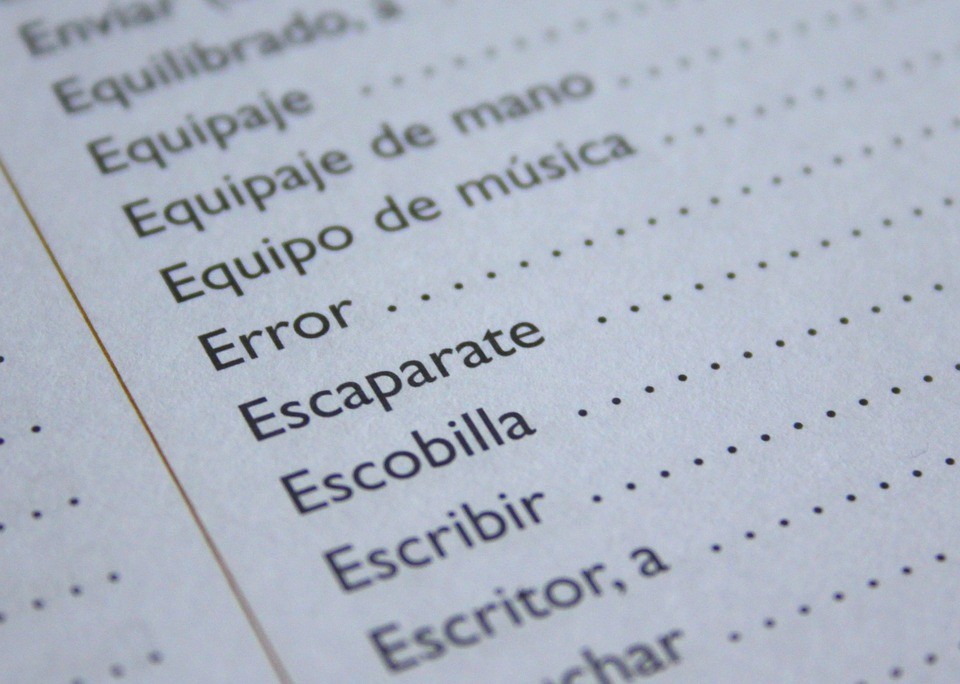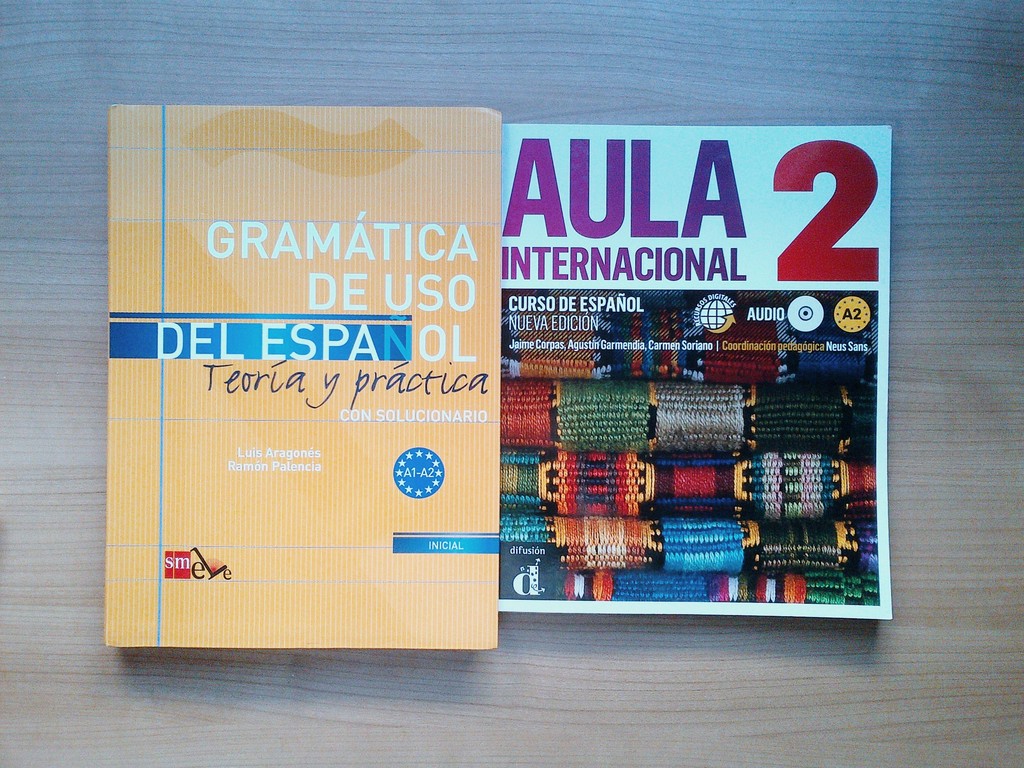Tips to learn Spanish
Spanish language is becoming more and more spoken worldwide. Currently there are about 500 million speakers on the globe. I have come across some predictions holding that sooner or later Spanish will take over the role of English as the lingua franca. Although, for now, this remains only a matter of the distant future, there is no question about the fact that being able to speak Spanish will increase your chances to be able to have a conversation around the world. Sounds cool, right? So either for the sake of making yourself understood or for the sake of the beauty of this language, it is worth to give learning Spanish a try. Therefore, this post will be dedicated to sharing some of my tips to acquire good Spanish skills.

Before starting with my list, I would like to tell you that Spanish is considered one of the easiest languages to learn for foreigners, specifically if you are a native English. This is due to the Latin roots of both languages. So if you have a good command of English, you can always experiment with turning English words into their Spanish corresponding. Once you are familiar with the forms of infinitives and word endings, it will become one of your favourite method to learn. To give you some examples:
- study – estudiar
- establish – establecer
- offer – ofrecer
- description – descripción
- education – educación ect.
I hope these examples will encourage all of my readers to consider learning Spanish. However, I have to admit that the real process is much more problematic than this. Spanish is a language with difficult conjugation rules, and as always, the number of exceptions is very often higher than those cases when the words actually fit into the rules. So the first challenge Spanish will pose to its learners is verb conjugation with all its tenses and cases – which is another number you don’t even want to hear about. Then, in Spanish every noun is assigned to a gender, which is either masculine or feminine. This results in making many mistakes, even in the easiest sentences. You will specifically have trouble with this if there are no genders in your mother tongue. Because while for Spanish, Italian and Portuguese people the reality is divided into masculine and feminine parts, a Hungarian has a complete different way of approaching the same reality. This is something I feel will always prevent me from speaking Spanish perfectly. But at this point, this is not my goal.

So here are some of my basic rules and ideas on how to learn Spanish:
Grammar is important, more important than you would think!
I want to highlight this part, because there are many people who think that someone can master a language without knowing how to speak it correctly. I don’t deny that at one point of the process communication becomes much more important than doing grammar exercises over and over again, but you wouldn’t start to build a house with its windows, either. You need to have a strong basic in order to be able to build on it later, and specifically in Spanish conjugation, for example, plays a crucial part in the learning process. Because the presence or absence of a single sound can actually determine the person who is performing the action in the given sentence. So make sure to familiarize yourself with the basic grammar rules and practice it as much as you can so that you can get to second level: starting to speak with people.
Pronunciation is a key
While in English, people will understand you even with a terrible accent, in Spanish, pronunciation and intonation are very decisive when it comes to communication. Spanish words are full of accent marks called “tilde” that determine which syllable gets the stress. And believe it or not, even with a very good accent there is a great chance that Spaniards won’t be able to understand you if you don’t pronounce what you want correctly. I could give you many personal examples regarding this issue, but probably the most depressive moment was for me when my speaking partner didn’t understand me saying Bilbao. Not a difficult word, but a simple city: Bilbao… Are you kidding me? What else could I have been trying to say?! Anyhow, take this advice and consider practicing pronunciation a very important part of learning Spanish.

Consistency
This basic rule is valid independently of the language you wish to learn. Studying a foreign language always requires time and dedication. Even if this means sitting down with your Spanish book only for 15 minutes per day, by revising the material or learning some new words, you make your brain work on a daily basis, which eventually will result in getting used to the given language. And you can engage in Spanish in many different ways, it doesn’t have to be strictly grammar or vocabulary; learning the lyrics of a Spanish song or watching a Friends episode will do the job. This one is by far the most important factor.
Use the language!
This can be repeated over and over again, there are still many people who don’t take it seriously. But the rule is very simple: there is no way you will ever be able to communicate properly if you don’t practice the actual speaking part as well. You have to use the language as often as you can. Nowadays, with all the communication technologies and the mobility patterns, your options to do it are infinite! The fact that you live far away from Spanish-speaking countries or you cannot afford to make a short visit to Spain can no longer be exceptions. There are many online courses or you can find someone on the internet and skype with them. Be creative!

Try to think in Spanish!
This is something that many people don’t even consider, but it is one of the best ways to experiment with your communicational skills, especially if you are too shy to talk out loud. With this method you can practice the language without stress and being judged. You are free to say any stupid mistake and you don’t have to be ashamed, because you can correct them before anyone would hear them. An alternative version of this suggestion is to talk to yourself at home when there is no one around. You’ll see that if you follow this method, you will gain confidence within no time!
Learn about the culture!
I cannot repeat it enough times that the culture of the nation whose mother tongue you are planning to acquire is an integral part of the language. There are numerous expressions and mentalities tied to cultural origins. If you want to understand Spanish people, you need to understand their way of thinking as well, and this can be done only by learning about their cultures. Not to talk about the fact that by familiarizing yourself with the culture from the very beginning, you will be able to avoid social misunderstandings. Remember the words of Edward T. Hall, an important figure of the discipline of intercultural communication: “culture is communication and communication is culture”.
So these were my basic rules and advices for studying Spanish. And now, I would like to tell you what kinds of books and online platforms I use for learning.
In the language school we were working from the books called AULA Internacional and Gramática de uso del Español. Both of them were very useful. While the former served as the original student book with articles, listening tasks and grammar exercises, the latter was specialized in practicing grammar.

Besides, I used alternative methods to expand my knowledge: first of all, from the very beginning I was watching Friends in Spanish, even if I barely understood it (or in case I did, it was more likely due to the fact how many times I have seen the seasons). I sat down in front of the television with a notebook and anytime there was a word or expression that prevented me from understanding the dialogues, I stopped the show and wrote it down in my notebook. Afterwards, when I finished the episodes, I looked up in the dictionary all the unknown expressions and copied them into my Memrise course. And this is how we arrive to my other method: there is an amazing online platform to learn languages called www.memrise.com. What you have to do is simply create an account and then you can already start using the website. They have many already existing courses that you can follow, but you also have the chance to create your own. So this is what I did. Anytime I come across a word that I don’t know, I open Memrise and update my list. By now, I have a list for every month and I can revise them whenever I want to. I would definitely suggest you to use this site, which allowed me to expand my vocabulary very quickly.
Also, make sure to follow my basic rules and advices in order to learn Spanish! I hope you will find them just as useful as they are for me.
Photo gallery
Content available in other languages
- Español: Consejos para aprender español
- Italiano: Trucchi per imparare lo spagnolo
- Português: Dicas para aprender espanhol!!
- Français: Tuyaux pour apprendre l'espagnol
- Polski: Sposoby na efektywną naukę hiszpańskiego
Want to have your own Erasmus blog?
If you are experiencing living abroad, you're an avid traveller or want to promote the city where you live... create your own blog and share your adventures!
I want to create my Erasmus blog! →








Comments (2 comments)
Hey! I found your advises really interesting, I'm starting to learn French now and be sure I will follow some of those tips you're posting for the world to see. Thx!
I'd also suggest https://preply.com/ that i used to improve spanish. Great experience!